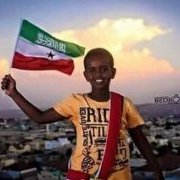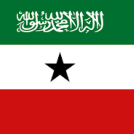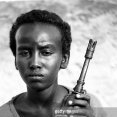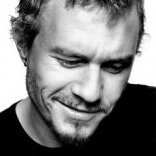Leaderboard
Popular Content
Showing content with the highest reputation since 04/07/2019 in all areas
-
4 pointsNiyaw horta comments kaagu kaama khasaarin aragti saxaad cabirtay oo aad qortay. Laakiin imika waanba sakhraansanay oo kuuma jawaabi karo indrkay talaabo wax waydiiya. Anigu geeridii nebiga ma ogiye
-
4 pointsOn the positive side this shows Somaliland is starting to realize ictiraaf isn't possible and taking more active role in the politics of Somalia.
-
4 points
-
4 pointsDP World completes 400 meter expansion of Somaliland’s Berbera port. 59Shares Friday August 14, 2020 DP World this week announced the completion of a 400-meter expansion of the Berbera port in Somaliland. The Dubai Port Company that is contracted to expand the port said once operational, it will increase the terminal’s capacity by 500,000 TEUs per year and further strengthen Berbera as a major regional trade hub servicing the Horn of Africa. In a tweet, DP World stated: “We have just completed a 400m quay and a new extension at Berbera Port, Somaliland. Once operational, it will increase the terminal’s capacity by 500,000 TEUs per year and will further strengthen Berbera as a major regional trade hub servicing the Horn of Africa.” The news has elicited excitement within the Somaliland government with the vice president Abdirahman Abdilahi saying: “As Deputy President of Somaliland and on behalf of the people, words can’t express my great excitement about the nearing completion of the Berbera port expansion. my gratitude goes to the Sheikhs of the UAE and the DP World.” DP world, the Dubai based world’s largest port operator is the key player in the rebuilding of Berbera, they have invested $442 million for the expansion of the port and are also the economic free zone. It has projected to complete work by February next year. advertisements In 2017 when the original agreement was signed, the CEO of DP World Mr. Sultan Ahmed bin Sulayem drew a parallel between the growth of Dubai and the development path Somaliland is on and added “Our vision is to make Berbera a trading and transportation hub for the Horn of Africa.” Berbera port is among the few corridors in the Horn of African region, which serves for both military and commercial purposes. The Berbera Port was built in 1964 by the Soviet Union and further expanded by the United States of America (USA) in 1982. It has served for both the Soviet Union and the U.S military within a span of 20 years. Once completed, facilities and service will surpass those in the neighbouring Djibouti according to the contractors. According to the DP World, the port will be able to handle the biggest ships compared to the other ports in the region and will complement activities at the Port of Djibouti and the Lamu Port which is also under expansion in the coast of Kenya. The Berbera Port expansion is the largest investment in Somaliland since it parted ways with Somalia in 1991. Work on the port expansion has reduced due to the measures put in place in the fight against the spread of the deadly coronavirus but the Somaliland government and the DP World have projected all facilities will be ready for operation early 2021. “We are very much on course. Of course the coronavirus has affected the speed at which we were on, but we will soldier on and deliver the most modern port facility in Berbera,” an official of the DP World said. The Berbera port expansion, designed to equip the Somaliland port for major vessels and transform it into one of Africa’s pre-eminent facilities. Expansion of the port started early last year with the first phase at a cost $101 million. Federico Banos-Linder, Vice President External Relations, DP World, said once the port is done, Somaliland will be one of the biggest and most modern players in the maritime industry in the Horn of Africa. “Already with phase one of the three phases done, we have increased the container capacity by 50 per cent and pushed volumes by 70 per cent which is a massive improvement. “We are now exporting 4 million livestock from 1.5 million just less than a year ago,” said Banos-Linder. Total investment of the two phases will reach $442m. The port’s current capacity is around 150,000 twenty-foot equivalent units [a measure of ships container carrying capacity] and is set to expand to 450,000 TEUs once development is complete. DP World firm will also create an economic free zone in the surrounding area, targeting a range of companies in sectors from logistics to manufacturing, and a $100m road-based economic corridor connecting Berbera with Wajaale in Ethiopia “Our aim is to make this an important regional hub for the maritime industry in the Horn of Africa,” DP World chairman and Chief Executive Officer Sultan bin Sulayem said. “We are within schedule in our work,” he added. DP World holds a 51 per cent stake in the Berbera port, while Ethiopia holds 19 per cent and Somaliland the rest
-
4 pointsThe recently upgraded Hagreisa land database registry is actually part of a larger project by Somaliland Gov't and SolidBlock Inc. The project will be using state of art block-chain based database to register land titles and other key assets.
-
4 pointsOodweyne They can't keep up. Befuddled, bemused and bewildered by Somaliland’s growing gravitas at international diplomacy. While they play tiddlywinks with Mudulood this and Dhuusomareeb 2.4 that. At least they're a curious bunch.
-
4 pointsThis is great improvement.The land database in Somaliland has been a consistent headache and cause for a lot of troubles including missing files, disputes etc. The introduction of GIS system will greatly simplify while at the same time is more secure and more reliable.
-
4 points
-
4 pointsAnd when they are training our navy and Air force it will be reported as a "Latin American" and an "Eastern European" country respectively
-
4 pointsThe political culture in Somaliland is an egalitarian one. Specially Beesha Dhexe. So for everyone from the unknown to the well known to have equal say and communicate their personal feelings or believes, it is a welcomed sign that the people are moving forward. This is why in Somaliland almost everything is openly discussed and nothing is hidden. The gov't is held to account, the ministers coming on TV explaining their side of the story. You will never see this type of open discussions of gov't ministers and opposition party engaging in lively political discourse about the goings on, anywhere else in the Somali regions. We know Mogadishu Khaire's moratorium on media engagement by his cabinet. We know Cheeseman, after almost 3 years, has never held an open questions interview. The same goes for Puntland where each Hagbad inheritor takes the enclave on a personal ride with no questions asked. So, all these public engagement, is music to my ears that the people are awake and taking part and shaping their future. What other Somalis take for granted, in Somaliland we don't. If we think the gov't is not on the right path, we tell it like it is without mincing words. And not wait until end of the tenor and call it 'what a bad leadersip it was' like Puntlanders do every 4years. Rather, you have to oppose what is wrong and support what is right every single day.
-
3 pointsVery much reflections of what I would expect from a bloody foreigner on a hushed visitation to a war zone marinated with a toss of mislaid Somalinimo flavour to balm chapped cavities of the forlorn diaspora hordes. Take you seriously, I shall not, till you have taken a crowded bus, with tiny seats not fit for a tall, burly gentleman of a certain age, from Adam Adde airport, paid the $5 fee to stride to the taxi rack, fight your way through rows of poor beggars to find a taxi or a bajaj to your destination; then at dawn, take a stroll through Bakaraha market for a homely breakfast in one of the low end shacks-turned-restaurants competing fresh "laxoox / canjeelo" flying off the pan with builders / workers in the morning rush, and get a sodden whiff of the rubbish, from the day before, still stacked up in the streets. With that, you would be a local lad back at home. But with you fancy bulletproof limo, VIP reception, backdoor exit to the city, and trotting between blue beaches and fancy hotels, mate, you are a bloody foreigner on tour. Now, tell me, is Awdal safe? Is Lughaya secure? Is Ceel Sheekh off limits?
-
3 points
-
3 pointsThe stip of land probably bigger than Gaza which warlord Muuse is giving away to Ethiopia will quickly be flooded with millions of Oromos and Afar, creating a de facto Ethiopian province in our own country. This new foreign region will cut off the Somalis in Djibouti from those of Somaliland and Somalia, completely isolating them. This isolation will weaken them and enable Ethiopia to help the Afar take over Djibouti. After getting access to the sea, Ethiopia will then be even more aggressive in pushing the Somalis in Ethiopia off their land and threaten every other region from the sea. This disaster waiting to happen must be stopped before it is too late.
-
3 pointsXamar iyo shirqoolkeeda ha iska ilaaliyo. Meesha bahalo ka buuxo.
-
3 points"We are Somalis, we will remain as Somalis, the most painful thing we felt was that you will not govern yourself, but we will govern you. We have denied that, the decision and advice of what happened in LasAnod, SSC Khaatumo is for the Somalis. We do not want to revenge them, the victory we achieved is a victory for the Somalis." Leader of SSC-Khatumo Abdiqadir Ahmed Aw Ali. (Today’s speech at Laascaanood September 14, 2023). "Anagu Soomaali baanu nahay, Soomaali baan ahaan doonaa, waxa ugu xanuunka badan ee aan dareenay wuxuu ahaa - Tashan mayside anaa kuu talin doona! Taas anagaa beeniney, go'aanka iyo talada wixii ka dhacay Laascaanood Waxay u taalla Soomaali. Ma doonayno in aanu aarsano, guushii aanu gaadhney waa guul Soomaaliyeed.” Hogaamiyaha SSC-Khaatumo Cabdiqaadir Ahmed Aw Ali. (Maanta khudbadii, Laascaanood, September 14, 2023."
-
3 pointsHuman wave attack baa nagu dhacay , we underestimated ciilka dadka Ku gadhoodhay. Rag waad Ka adkaan kartaa laakiin bulsho dhan oo gurigooda jooga lagama adkaan Karo. Waan Ku faraxsanahay in muddo dheer oo Sool Clan wax naga tirsanayey ay maanta si wacan nooga adkaadeen. As a HJ Guushan Anigu uma arko qiyaame noo dumay, if we honour it. Waxan u arkaa nolol cusub oo noo bilaaban tay anaka iyo Sool Clan . Mid Ku dhisan sinaaan iyo walaaltinimo. Sidii awalba noo caadada ahayd, after every war halays waso. Saacada laga bilaabo qalasad baan isu dhiibaya faraxsan Anagu qab baanu Ku dagaalana haduu doono kibirba ha ahaadee , mar hadii goojacade nalaka saaray general bootaana la qabtay. Qabkaasi naguma jiro hada. Sool clan deserved this victory. Congratulations baan leeyahay. Wixii lasii wadwadaa waa dagaal saqajaan .
-
3 points
-
3 pointsIf they ever take a legal action against any investor in the Western courts, Somaliland will have a huge opportunity to challenge Mogadishu's claims to sovereignty and expose the whole fraud the illegal "union" was built on.
-
3 pointsFarmaajo pushed the dictatorial limits and that was most likely his downfall. He was truly convinced of his own invincibility till the end. People were also tired of the continued corruption that never went away even though Farmaajo campaigned on a promise to end it. I think this was anti-Farmaajo vote than anything else. Anyways, the country needs prayers and all the help it can get because the new guy was far worse on corruption than Farmaajo. Hopefully HSM learned his lesson and comes up with new ideas to govern the country because he was truly unable to deliver anything meaningful the last time he was given the chance.
-
3 pointsProjects that will be finalised This year. 1. Burco - Ceerigaabo Road - 300 km of fully locally funded paved road will be finished in September 2020. This road has already cut the travel time between Burco and Ceerigaabo by half. People now can have their breakfast in Hargeisa and have lunch in Ceerigaabo. A tremendous improvement. 2. Berbera corridor Road - 200km modern highway that will connect Berbera to the trading town of Togwachale will be completed by October this year. 3. Berbera Port expansion - the new 400m Berbera Port Container Terminal will be completed by October this year 4. Berbera International Airport - the newly refurbished with new 4km runway, will be opened later in the year. Projects that will be turning sod in 2020 1. Hargeisa - Burco Road via Oodweine, funded by African Development Bank and Somaliland Government, this 180km hinterland road will cut travel time between Hargeisa and Burco by 1/2. The current road via Berbera is total length 300km. The new road via Oodweine will be 180km. Travellers will be saving over 100km of fuel expense and a lot of time. This road will also help cut time to far Eastern regions i.e. time to reach Ceerigaabo will be further cut. 2. Djibouti - Jigjiga Road via Borama, also Funded by Africa Development Bank, this is 250km Road that will link Djibouti and Jigjiga passing through Borama. 3. Drill babe Drill - The first Oil well of many will get drilled this year. 4. Ceerigaabo - Mait Road - a 30km steep downhill/uphill road that winds down through Daallo Mountains and crosses Tabca Pass. This road will cut travel time to and from coastal communities. 5. Mait Fishing Port - A port that will serve as an economic hub for Sanaag regions to tab into the rich fishing seas on its shore.
-
3 pointsCensus in 2021 Somaliland: Governemnt Reveals Plans for Population Census MENAFN.COM <br /><span class=wp-caption-text>Somaliland planning minister revealed planned census at parliament in Hargeisa</span> <p>Somalilandsun: The government of Somaliland has announced...
-
3 points
-
3 pointsWith no visible means of support The unexpected success of Somaliland By Kieran Pender For some time now, our global landmass has been neatly divided into the 193 member states that make up the United Nations. Cartographically, the world has remained remarkably static in recent years, with just one new member admitted to the club of nations in the past decade (South Sudan) and only three in the decade before that. This stasis belies a convenient fiction, however. In a number of places, the cartography does not reflect the reality on the ground. Some examples are prominent – Palestine, say, which is recognized by over two-thirds of UN member states but lacks full acceptance on the international stage. Google Maps uses a dotted line to delineate its border with Israel. Northern Cyprus gets the same treatment: it is recognized only by Turkey. So too does Kosovo, which has received over a hundred diplomatic recognitions. Such cartographic oddities multiplied in the 1990s, during a wave of violent secessionist conflict. In the Caucasus, Abkhazia and South Ossetia broke away from Georgia following the dissolution of the Soviet Union. Georgia claims that both are now Russian-occupied; most locals disagree. Transnistria is a narrow sliver of land between Moldova and Ukraine, which seceded around the same time, as did Nagorno-Karabakh in Azerbaijan. Elsewhere, Iraqi Kurdistan, Western Sahara and Somaliland have similarly found themselves with some degree of sovereignty but without international recognition: “square pegs in a world of round holes”, according to the politics professor Deon Geldenhuys. These de facto nations have all the trappings of statehood – passports, currency, flags, elections, parliaments – but they are routinely ignored by the global community. Isolated from international institutions, formal trade networks and political blocs, such pariah territories have been routinely dismissed – including by institutions such as the European Paliament – as war-torn badlands and hotbeds of organized crime. They were also assumed by many to be transitory, and thus received little scholarly attention. But in time it became apparent that they were not going anywhere. Almost three decades since many of them were spawned, they persist – real on the ground, invisible on the map. In When There Was No Aid: War and peace in Somaliland Sarah Phillips considers a particularly peculiar example. Once a British protectorate, Somaliland enjoyed a fleeting week of independence in 1960 before merging with its southern neighbour, Italian Somaliland, to form Somalia. It was an unhappy union. Famine and oppression from the south ultimately precipitated civil war, and in 1991 (northern) Somaliland unilaterally declared independence. Most separatists have had a patron state to provide support and limited recognition. Abkhazia, for example, was recognized by Moscow in 2008 after the Russia–Georgia war – and diplomatic acknowledgement followed from several states allied with the Kremlin. The Somalilanders had no such fortune; pleas for international endorsement of their independence fell on deaf ears. Hence the title of Phillips’s book. While most post-conflict zones benefit from considerable international assistance, Somaliland has received barely a penny. International isolation and negligible aid were an inauspicious start for this fledging statelet, particularly as billions of pounds and swarms of international advisers poured into Somalia. Yet for all this assistance Somalia remains to this day racked by violence, piracy and terrorism. Somaliland, meanwhile, has emerged as a beacon of hope in the Horn of Africa – stable, relatively democratic and broadly functional. For Phillips, an expert on international development, Somaliland therefore provides a curious example of development without intervention. “For all the doubts raised about the effectiveness of international assistance in advancing peace and development,” she writes, “there are precious few examples of developing countries that are even relatively untouched by it.” As a result, it is ordinarily very difficult to consider counterfactuals, which question whether aid is actually helpful. Somaliland’s example offers partial clues. Its peace was “painstakingly negotiated under the trees at dozens of clan-based conferences”, while Somalia’s was “negotiated in five-star hotels funded by the United Nations”. Only one endured. When There Was No Aid is the result of extensive fieldwork. Phillips interviewed hundreds of people across a range of fields to understand how Somaliland secured stability while its southern neighbour remained mired in violence. She has drawn on this impressive research alongside other scholarly literature to produce a compelling account of Somaliland’s path to peace. While it is evidently written with an academic audience in mind – the book is grounded in theory and has an exhaustive reference list – When There Was No Aid is lively and accessible. Phillips makes a compelling case for the unexpected positives of non-recognition. As one minister tells her, the country’s isolation has been a “blessing in disguise”. Because the peace process was free from “institutional endpoints favored by international donors”, Somalilanders, the author tells us, “had the freedom to cherry-pick from local and international institutional governance models and to experiment”. This enabled the country to fashion innovative models blending Western governance with local customs. A system of clan-based proportional representation (the beel) was adopted, while an unelected house of elders (the Guurti) was integrated alongside a democratic two-tier legislature, presidential executive and an independent judiciary. While these structures are not faultless – Phillips suggests that the once influential Guurti has lost local legitimacy – their endurance stands in contrast to Somalia’s abiding governance crisis. Phillips’s most original contribution comes through her observation that stability has been maintained largely through words rather than actions. She suggests that while Somaliland’s institutional capabilities remain limited, and open to corruption – “the law here is fifty US dollars”, says one security official – the “othering” of Somalia’s continuing violence and the desire for international recognition have incentivized peace. Somalilanders, she argues, “have responded to institutional weakness by discursively compensating for it on the level of identity and by asserting their ability to maintain peace without strong institutions on the basis of that identity”. Her evidence for this is persuasive. She points to a contested presidential election in 2003, when many observers expected violence. Instead, the chair of the defeated party, Kulmiye, which had lost by just 0.01 per cent of the vote, publicly rejected the idea of forming a parallel government, saying: “I won’t go down that road, because no one can guarantee that we won’t end up like Mogadishu”. Phillips cites the absence of piracy in Somaliland as another measure of its success, putting this again down to the social consensus. As a local analyst tells her: “the population is alert to what the international community needs to see to recognize Somaliland. They want to protect that”. Phillips is also a shrewd detective. She highlights the pivotal role played by female activists, who can “cross clan lines” to facilitate dialogue because they hold dual clan identities – familial and matrimonial. And she identifies the centrality of one local boarding school, Sheekh Secondary – privately funded but non-fee-paying – to the country’s political make-up: of the fifty or so most influential political actors during the 1990s, fully half had attended the small, merit-based, cross-clan institution. One graduate tells Phillips that the alumni network functioned “like a secondary tribe”, aiding political cohesion during the turbulent decade. While some observers, such as the ethnologist Markus Hoehne, have called Somaliland a “sui generis” case, with little for us to learn from, Phillips disagrees. The country’s experience may have been idiosyncratic, but “this does not mean the underlying drivers of its trajectory do not have broader relevance”. In her eyes, Somaliland indicates that development institutions have been asking the “wrong question” when it comes to external intervention. “Aid matters less than we think it does because it does not alter the asymmetries that make it difficult for countries in the Global South to extract themselves from violence and poverty.” These observations are astute, and it thus seems a shame that they were crammed into the nine-page conclusion and not further explored. Today, Somaliland is no longer quite so isolated. The UN has twenty-two different agencies operating there, under the guise of its wider activities in Somalia, while the British and Danish governments have found ways to channel assistance indirectly. The United Arab Emirates is a major commercial investor and has also cooperated on security matters. In June, the presidents of Somalia and Somaliland even met in Djibouti for peace talks. “Somaliland is at a critical juncture”, Phillips observes – even if it is not yet on the map. Kieran Pender is an Australian writer and lawyer based in London. He has reported extensively from Abkhazia for the Guardian, Al Jazeera and Monocle
-
3 pointsThere is a dedicated export only meat processing plant in Berbera funded by the UAE. I agree exporting mutton is more economically superior as both jobs and other by-products can be reused for other industries i.e. blood/gut can be used as fertiliser and skin can be processed as hide/leather.
-
3 pointsDawning of a new era. Incredible how work continues unabated at the original port at full capacity during the expansion.
-
3 points
-
3 pointsProf Faratoon is in Ankara, Turkey. He will be holding talks with officials from Turkey's Foreign Affairs. Somaliland: FM Arrives in Turkey | Somaliland Standard SOMALILANDSTANDARD.COM The Foreign Minister of the Republic of Somaliland arrived in Turkey for talks with his Turkish officials at the ministry of foreign affairs. Somaliland’s Foreign Minister, Yasin Haji …
-
3 pointsMashruuca Biyo-galinta magaaladda Hargeisa oo shanta degmo ee magaaladda ka socda.
-
3 pointsThere also needs to be an urgent solution to the huge problem we have regarding fruit and vegetable production. Every year our farmers produce a lot of fresh organic fruits and vegetables in some of the seasons and the the markets get flooded with cheap produce in those seasons only therefore not making enough profits for the hardworking farmers. The government should implement a similar scheme for fruit and vegetable farmers whereby the government buys the excess produce and converts it into long shelf life foods. These processed foods can then be sold back in the markets recovering the initial cost of production and at the same time keeping our shops well stocked with cheap quality food. This is also the best way we can stop the sub-standard often expired food our traders import from the UAE, China, and other places.
-
3 pointsAbsolutely. He is a no frills man but doing a lot of work behind the scenes. Maalin ba dal ayaynu baraynaa qadaadweynta.
-
3 pointskkk Cheeseman bilo ayaa u hadhay, maxay kale ayaad ka filanaysay?
-
3 points@galbeedi Somaliland Wins: 1. Somaliland demanded that for the talks to go ahead, they should not be left to Somalis alone in a meeting room. Rather, the IC community needs to be there as mediators and guarantors of the agreements. This has been checked [tick] 2. Somaliland demanded the talks be held as equals Somaliland and Somalia This has been checked [tick] 3. Somaliland demanded the talks must be between representatives of Somalia (what used to be Ex-Italians Somalia) and Somaliland. Checked [Ticked] -------------------------------- The following are still being discussed ... 4. Implement of previous agreements Somaliland says all the previous agreements need to be implemented before any serious talks can be opened about other more important issues. Somalia wants preconditions for those agreements. The mediators are on the side of Somaliland. As also tweeted by Turkish Ambassador, when he questioned about the faith of previous agreements. 5. Agreement on debt relief and World Bank/IMF new loans Somaliland is aware how the agreement between Somaliland/Somalia regarding the Airspace was one of the reasons why the UN ICAO handed over the Airspace back to Somali hands. However the Somalia Government backtracked from implementing the agreement. Considering that history of dishonesty from Mogadishu, any agreement with regards to WorldBank/IMF etc, will strong concessions on Mogadishu side attached to it. Whether Mogadishu walks away or not, that is not our issue.
-
3 pointsAdiga wax makusoo gaadheen mise tacabkaagii wuu khasaaray
-
3 pointsDo you think the Americans are unaware that Somaliland is just a smaller version of southern Somalia with just as much corruption, nepotism, mistrust among clans, violence, tribalism, religious extremism, etc?
-
3 points
-
Newsletter





.thumb.jpeg.79edf7e652eaa56ebe85e2c649f6cd14.jpeg)






